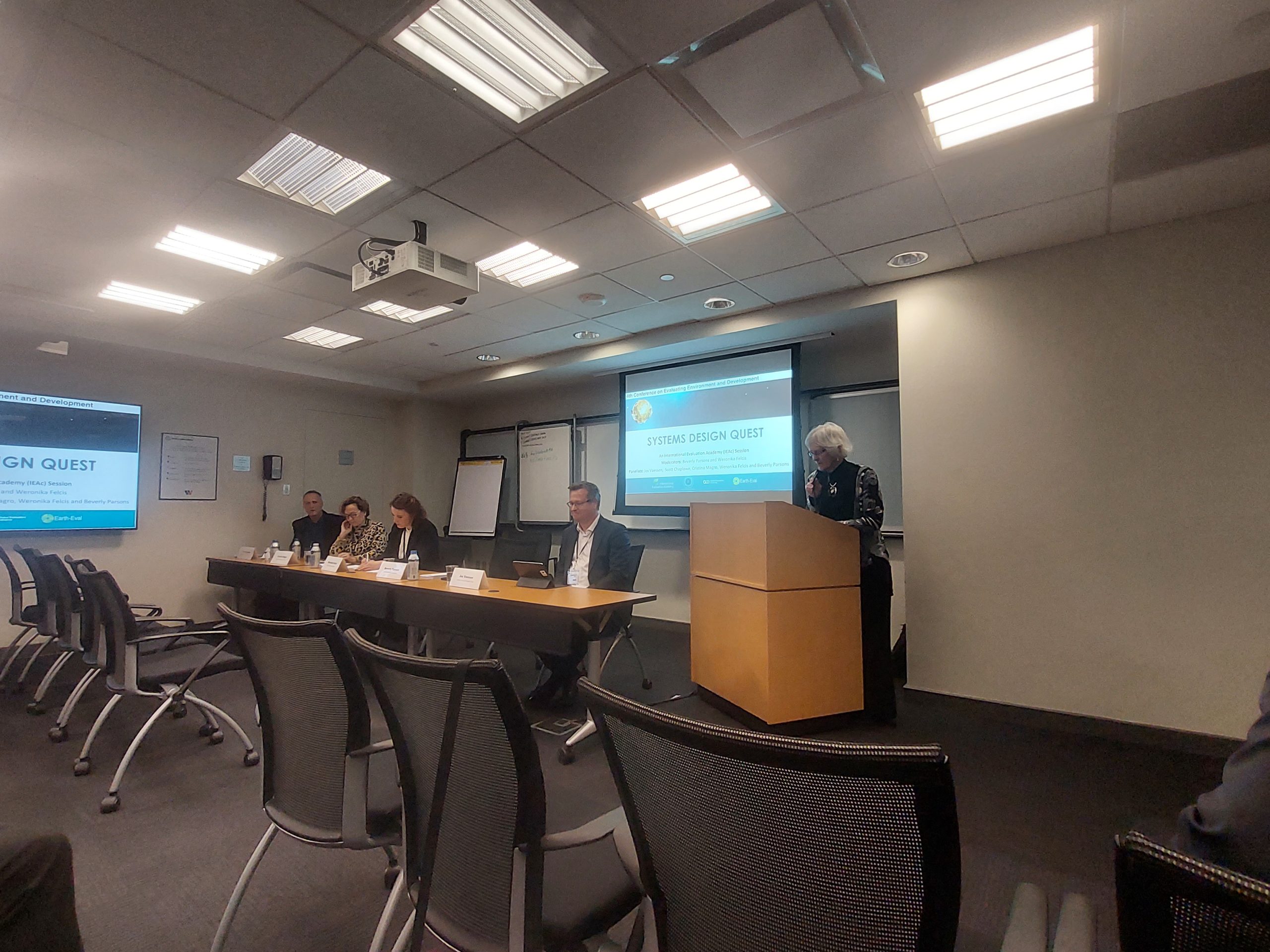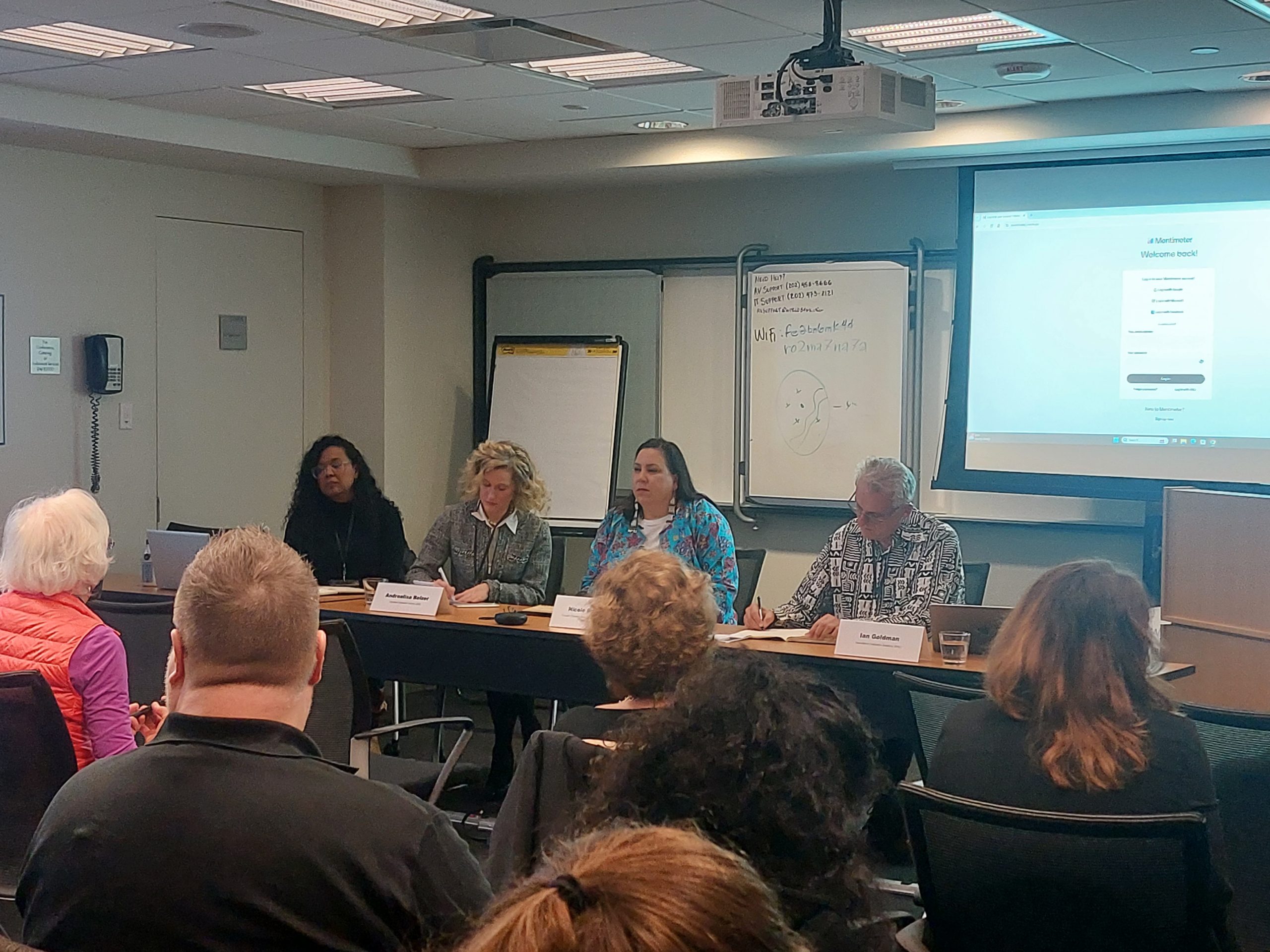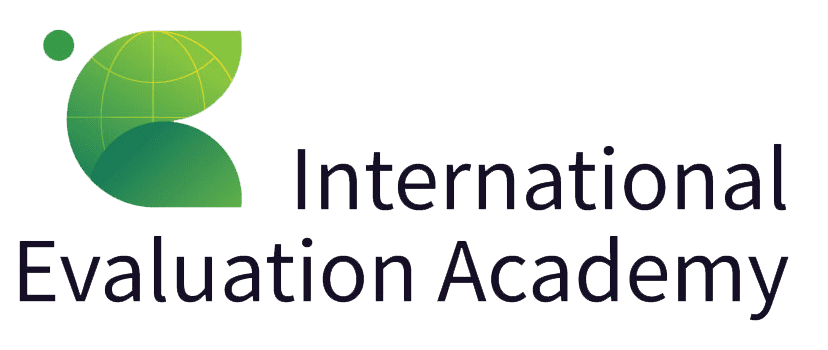The International Evaluation Academy co sponsored the 4th Conference on Evaluating Environment and Development, scheduled from March 5th to 7th, 2024. It was an excellent opportunity to share the IEAc vision and work. We led three panels with IEAc members and other relevant voices in the evaluation, and our members participated in some panels.
 The objective of the Systems Design Quest panel was to explore the impact of systems thinking on our perspective and its utility in designing evaluative thinking. The term “Quest” in the session title alluded to a challenging journey rather than an end state. The Questers may bear distinct interests, with some seeking to acquire new skills or to find solutions for their communities. The panelists, Weronika Felcis, Beverly Parsons, Cristina Magro, Scott Chaplowe, and Jos Vaessen, delivered challenges, evaluative questions, and reflection exercises to the attendees.
The objective of the Systems Design Quest panel was to explore the impact of systems thinking on our perspective and its utility in designing evaluative thinking. The term “Quest” in the session title alluded to a challenging journey rather than an end state. The Questers may bear distinct interests, with some seeking to acquire new skills or to find solutions for their communities. The panelists, Weronika Felcis, Beverly Parsons, Cristina Magro, Scott Chaplowe, and Jos Vaessen, delivered challenges, evaluative questions, and reflection exercises to the attendees.

The panel Mainstreaming ecosystem health, and equity lens into all evaluations convened to address the issue of mainstreaming ecosystem health and equity into all evaluations, to foster a cooperative, equitable, and just collaboration in the wake of recent natural disasters. The interconnectedness of human and natural ecosystems has become increasingly apparent, underscoring the need for a holistic approach that addresses equity and human rights alongside environmental concerns. The panel, comprised of Weronika Felcis, Sonal Zavery, Janett Salvador, Jane Davidson, and Andy Rowe, presented a viable path forward that integrates ecosystem health and equity into all evaluations.
 The Decolonizing Evaluation panel aimed to provide attendees with diverse insights regarding the significance of decolonizing evaluation and evaluation systems. The panelists endeavored to demonstrate the impact of this practice on their work, regardless of their involvement in local, national, or donor evaluation systems and whether they commission, undertake, or utilize evaluation evidence. This approach reflects the need for significant changes to ensure resilience in the face of the ongoing poly-crisis and emphasizes the necessity to transform evaluation beyond the mental models and priorities of dominant economic and political forces. The panelists included Candice Morkel, Ian Goldman, Nicky Bowman, and Andrealisa Belzer.
The Decolonizing Evaluation panel aimed to provide attendees with diverse insights regarding the significance of decolonizing evaluation and evaluation systems. The panelists endeavored to demonstrate the impact of this practice on their work, regardless of their involvement in local, national, or donor evaluation systems and whether they commission, undertake, or utilize evaluation evidence. This approach reflects the need for significant changes to ensure resilience in the face of the ongoing poly-crisis and emphasizes the necessity to transform evaluation beyond the mental models and priorities of dominant economic and political forces. The panelists included Candice Morkel, Ian Goldman, Nicky Bowman, and Andrealisa Belzer.

Scott Chaplowe participated in a panel titled “Transformational Change.” The panel focused on how evaluation organizations conceptualize and account for transformational change and examined evaluators’ and evaluation systems’ methods for capturing and encouraging it.
Sonal Zavery and Nicky Bowman participated in a panel called “Inclusion,” where they shared their experiences assessing inclusion by utilizing traditional and indigenous knowledge and anchoring research practices in human rights, gender, and equity.
The 4th Conference on Evaluating Environment and Development provided the IEAc with a great platform to display our relevant work, our interests, and the value our members bring to the table. The conference also allowed us to connect with new people and expand our reach. Please don’t hesitate to contact us at coordinator@ieac.global if you want to learn more about our work.
